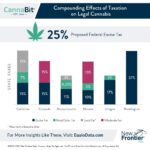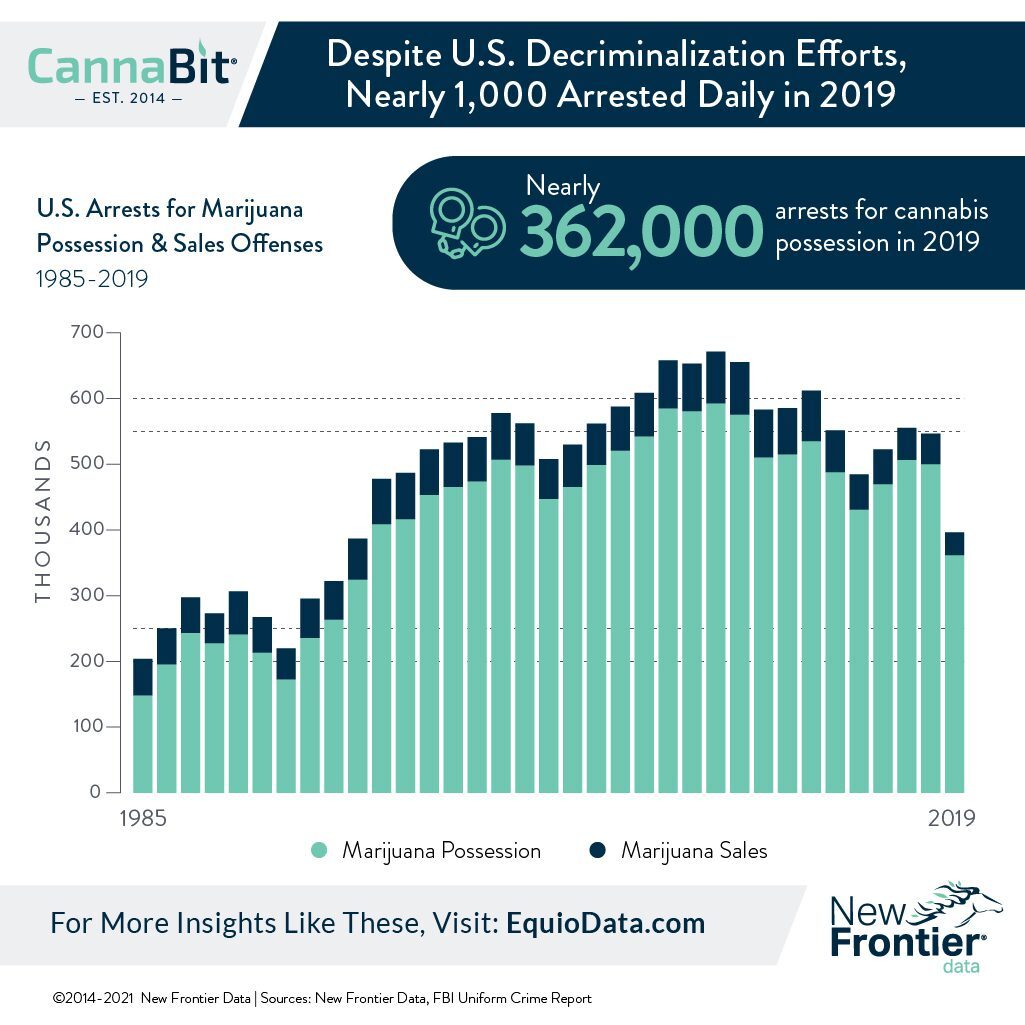Social Equity and the Proposed Cannabis Administration and Opportunity Act

Proposed Federal Cannabis Tax Model Could Create Significant Disruptions, Drive Higher Costs for the Industry
August 30, 2021
Grass Grows Greener Globally as Total Cannabis Consumers Increase Worldwide
September 13, 2021By Josh Adams, Ph.D., Senior Industry Analyst, New Frontier Data
The draft of the Cannabis Administration and Opportunity Act represents one of the first efforts on Capitol Hill to establish a framework for the regulation of the legal cannabis industry at the national level. Among the sweeping range of issues addressed by the legislation is a series of proposals focused on social equity and restorative justice in the aftermath of the decades-long War on Drugs. Those policies include the creation of economic opportunity funds and the expungement of cannabis convictions.
Specifically, the bill provides for the expungement of prior cannabis convictions and the opportunity for anyone currently under sentence to petition for a reduced sentence. It stipulates that within a year of enactment each federal district will expunge any arrest or conviction for nonviolent federal cannabis offenses. Additionally, anyone currently serving a cannabis-related sentence will be allowed to petition for a reduced sentence.
The draft legislation also establishes three grant programs to fund initiatives providing for some degree of restorative justice. Those include the Community Reinvestment Grant Program to provide services for those adversely impacted by the War on Drugs with an emphasis on job training, reentry services, legal aid related to cannabis convictions, literacy programs, youth recreation and mentoring programs, and health education. The Cannabis Opportunity Program is designed to assist small businesses in the cannabis space which are owned by socially and economically disadvantaged individuals. Finally, the Equitable Licensing Grant Program will provide funds for the development and implementation of equitable cannabis licensing programs that minimize barriers to cannabis licensing and employment. Assistance can include the waiver of application fees, prohibiting the denial of a license based on a previous cannabis conviction, prohibition of drug testing for most cannabis business employees, and the creation of a representative cannabis licensing board.
While the provisions do represent solid first steps, other issues remain unaddressed by the legislation. As cannabis has been a central pillar of the War on Drugs, addressing the impact on poor and minority communities and undoing the outsized influence which it has had in shaping policing practices will require broad, resource-intensive efforts which are not proposed in the current version.
As New Frontier Data has previously reported, while both White and Black cannabis consumers demonstrate roughly equal rates of use, Black consumers nationwide are 3.6x more likely than are White consumers to be arrested for cannabis-related offenses. Furthermore, despite the legalization of cannabis leading to a reduction in the overall number of those arrests, racial disparities remain among arrests still taking place. New Frontier Data found that in Colorado between 2008 – 2017, Black consumers were still 1.5x more likely to be arrested than were White consumers. Further, despite the increasing liberalization of cannabis laws, there were nearly 362,000 arrests for cannabis possession in 2019, a rate of almost a thousand per day.
Additionally, there is some question whether the equity provisions in the legislation truly create more opportunities for disadvantaged communities. With budgets for those programs currently undefined, leaving a lack of clarity about who is eligible for those programs, the provisions acknowledge the need for equity and justice but remain untested. Social equity programs (SEPs) have often struggled to meet the needs of the communities for which they were designed, outweighed by the total capital necessary for operations, licensing, and compliance in a highly regulated industry and competition from better-financed operators.
For a detailed analysis of the full CAOA draft, download New Frontier Data’s latest report Up in Smoke? Analysis of the Cannabis Administration & Opportunity Act.




